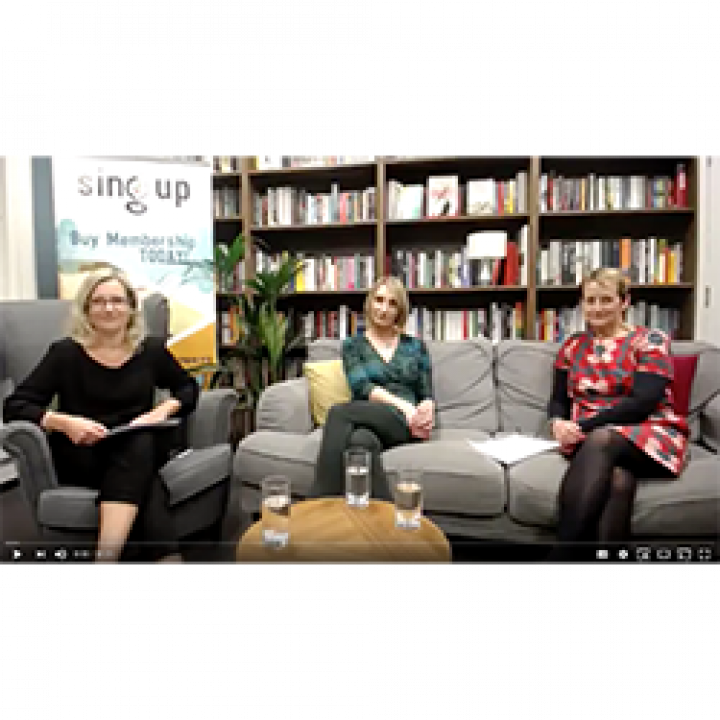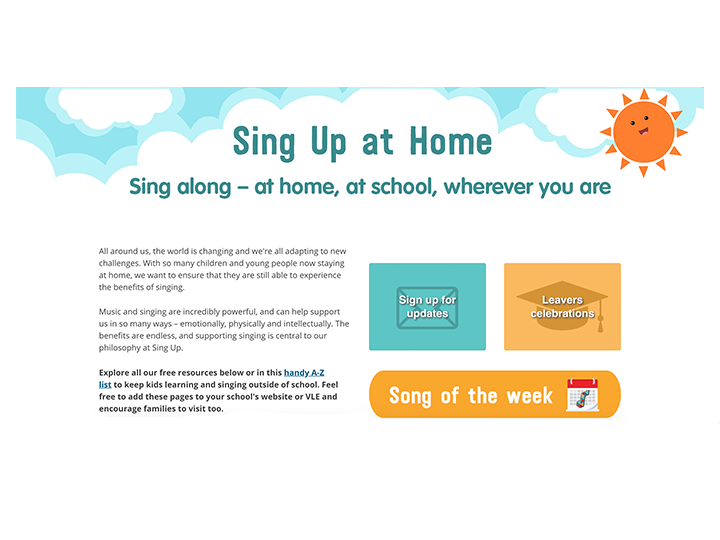
How important is singing and music to your school, and why?
Music is an integral part of life at Amherst and we are always striving for the highest standards of musical education for every child. Singing is the best way to access and develop children's musicianship and, as a Junior School, I find that it also levels the playing field for those who have had little experience of music at Key Stage 1. All children have been born with a voice and can learn to use it! Every child sings in daily assemblies, in class and in our whole-school musical productions. We are also strong advocates of instrumental music and support over 120 instrumental lessons in school each week.
Tell us about the choirs and singing that you run.
I lead two main choirs, a non-auditioned ‘Training Choir’ and the auditioned ‘Amherst Choir’. I also run various bespoke choirs throughout the year, rehearsing for events such as the Scratch Youth Messiah at the Royal Albert Hall, which 40 children took part in just before Christmas. Our auditioned choir have a very busy calendar, singing in competitions, lunch clubs and around the community. Last year we were invited to perform at St John's Smith Square, premiering a piece written by composer Bob Chilcott, which was such a privilege. This choir is one of the highlights of my week and is the thing of which I am most proud. The children are dedicated, learn lyrics the instant they are handed out, and continually surprise me with their fierce commitment and eagerness to learn. It saddens me that the Year 7 and 8 children come back to visit and lament the lack of high quality musical opportunities in their secondary schools.
What impact have you seen singing have on your school community?
Amherst has always had a tradition of singing, the impact of which is quite inextricable from the school's culture. My main role in school is actually as a Year Group Leader and Year 4 class teacher; from that perspective, it is wonderful to see what singing provides for the children who you would never predict as 'musical'. Having such a long-term culture of singing means that our children in school are enthusiastic to sing at any time of the day and the well-documented Year 6 affliction of being "too cool" for singing is not really an issue! It is wonderful to see over 100 Year 6 children and teachers singing their hearts out when we bring the year group to the annual Young Voices at the O2 Arena.
Can you tell us about the CD that you recorded last summer? What was the CD for? What do you think that your singers gained from this experience?
Recording a CD had been in the back of my mind for years but I had been worried how I'd find the time to organise it around full-time class teaching. In the end I contacted www.recordings4schools.co.uk and was instantly reassured by how simple they made the process. We wanted the whole school to be involved but also to showcase separate year groups as well as the choir. We rehearsed in the weeks leading up to the recording and, on the day, managed to record 24 songs (after which I needed a long sit down). Most families in the school bought at least one copy of the CD and we therefore raised significant funds towards school music. Many parents have contacted me to say how much they now enjoy listening to the CD on car journeys! It certainly raised the profile of school music and I have seen its impact in the number of children who have become involved in extracurricular music this year.
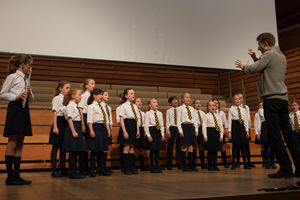
What advice do you have for getting other members of staff engaged in singing?
I am so fortunate to have a Headteacher who, like me, is a former music graduate. We also have two or three members of staff who play instruments and are involved in school music. However, I know from my last school how difficult it can be to engage certain members of staff in music. For adults who have grown up without singing, it can be an intensely personal and nerve-wracking thing so I tend not to apply too much pressure. Ironically, I find that my best tool for engaging the staff is the children, as they are the model of enthusiasm and participation that I wish to see. Sing Up has also been a great help, as it provides for those teachers who wish to sing with their class but lack the confidence to lead the singing themselves.
We’d love some tips for teachers: how do you get your pupils enthused about a singing session?
Although it sounds obvious, the key thing is to be enthused yourself, to like the pieces you have chosen and to enjoy the experience of singing alongside the children. On a more practical level, a well-sequenced warm up is essential for preparing the voice and for energising the group. Some children start every session with a natural inhibition to singing and this will always need to be addressed before they are able to sing freely. For me, that is the real benefit of the warm up, particularly in whole-school singing assemblies. For my choirs, I find that they are truly motivated when I respect and treat them as real musicians, when we rehearse towards specific events (competitions can be hugely motivating) and when I choose repertoire which is challenging but they leave humming. Remember that children tend to want to sing songs they already know and it may take time for new repertoire to grow on them!
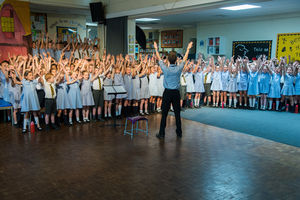
How do you get top notch performances from your singers?
It is important to have a clear model in your head of what a high-quality children's choir sounds like and to know age-appropriate repertoire. For me, I have been so inspired by Alison North and the wonderful work she has done with choirs in Huddersfield. When I started out, I also benefitted hugely from a conducting course with the Association of British Choral Directors. With my choirs and whole-school singing, I tend now to do most rehearsals unaccompanied, so the children are encouraged not to rely on a piano or backing track. I am quite relentless in my pursuit of unison singing, rehearsing word endings so the children know when to cut off notes and when to breathe! Over time, I have found that the children have developed a huge amount of critical engagement with the music and often remind me if I forget to tell them about its technical features.
What are your top five Sing Up songs?
- One and a million It has meaningful lyrics, a high quality backing track and is a good opportunity to teach two- or three-part harmony.
- Refuge Singing enables children of a young age the opportunity to access quite complex emotions in a safe setting. This piece is one such example, with authentic lyrics and a beautiful melody.
- Cockles and mussels A fun folk tune which encourages careful singing.
- My fantasy football team One of my favourite 'coming in to assembly' songs which the children love to sing.
- The animals went in two by two I enjoy watching the other members of staff try to fit the words in for verses 6 and 7.
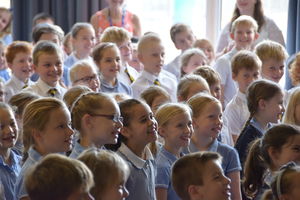
What are your aspirations for singing and music in your school?
I would like every child to be engaged in and inspired by music. I have met too many adults who regret giving up an instrument or not singing in a choir, and hope that no former pupil will look back and regret not fulfilling their potential. I fully agree with the words of Kodály: ‘Often a single experience will open the young soul to music for a whole lifetime. This experience cannot be left to chance; it is the duty of the school to provide it.


